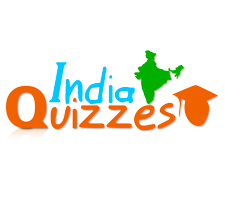General Knowledge Quiz 36 about India. general knowledge quiz India. Test your general knowledge about India online for free. Free basic GK test online for you. India basic general knowledge quizzes for various entrance exams.
1.The Parliament of India cannot be regarded as a sovereign body because
A. it can legislate only on subjects entrusted to the Centre by the Constitution
B. it has to operate within the limits prescribed by the Constitution
C. the Supreme Court can declare laws passed by parliament as unconstitutional if they contravene the provisions of the Constitution
D. All of the above
2.The name of the Laccadive, Minicoy and Amindivi islands was changed to Lakshadweep by an Act of Parliament in
A. 1970
B. 1971
C. 1972
D. 1973
3.The members of the Rajya Sabha are elected by
A. the people
B. Lok Sabha
C. elected members of the legislative assembly
D. elected members of the legislative council
4.The members of the panchayat are
A. nominated by the district officer
B. the electorates of the respective territorial constituencies
C. nominated by local self-government minister of the state
D. nominated by the block development organization
5.The power to decide an election petition is vested in the
A. Parliament
B. Supreme Court
C. High courts
D. Election Commission
6.The present Lok Sabha is the
A. 13th Lok Sabha
B. 14th Lok Sabha
C. 15th Lok Sabha
D. 16th Lok Sabha
7.The Parliament of India can make use of the residuary powers
A. at all times
B. only during national emergency
C. during national emergency as well as constitutional emergency as well in a state
D. None of the above
8.The members of Lok Sabha hold office for a term of
A. 4 years
B. 5 years
C. 6 years
D. 3 years
9.The Parliament exercises control over council of ministers, the real executive, in several ways. Which one of the following has been wrongly listed as a method of control over executive?
A. Questions
B. Supplementary questions
C. Adjournment motions
D. None of the above
10.The number of writs that can be prayed for and issued by the Supreme Court and/or a High Court is
A. 3
B. 4
C. 5
D. 6
Answers:
1.(d), 2.(d), 3.(c), 4.(b), 5.(c), 6.(d), 7.(a), 8(b), 9.(d), 10.(c)


